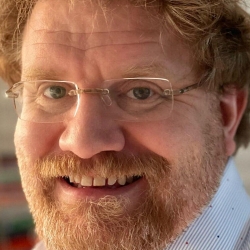
According to the US National Security Agency, we’re living in the “golden age” of signals intelligence—the spying on worldwide communications of all kinds. The Snowden documents, now in the public eye for about a decade, revealed a surveillance apparatus of extraordinary breadth and depth. Yet, for all their lurid fascination, their confirmation of some tinfoil hat theories, their illustration of compliance regimes, the documents reveal little about how we came to build this apparatus. They tell little of the surprisingly broad bipartisan consensus, from the mid-1990s onward, supporting the vast expansion of domestic and international surveillance and dramatic alterations in the law around wiretapping and hacking, in the US as well as its close partners.
9/11 accelerated these shifts. It did not cause them. From the war on drugs of the 1980s, to beginnings of the focus on terrorism as the new primary enemy from the mid 1990s, electronic surveillance came to appear ever more essential and licit to spies, presidents, legislators and judges. This talk will trace the technological and legal developments, as well as the radical rethinking of the security of the “homeland,” making this all possible. In the wake of 9/11, these contested developments were made to appear at once technologically determined and essential for security in an asymmetric age.
Bio: Matthew L. Jones is the Smith Family Professor of History at Princeton University. He focuses on the history of recent information technologies and intelligence as well as the history of science and technology in early modern Europe. He received his A.B. and Ph.D. from Harvard (1994, 2000) and an M.Phil. from Cambridge, after which he taught at Columbia for twenty-three years.
Along with Chris Wiggins, he is the author of How Data Happened, a history of the science, politics, and power of data, statistics, and machine learning from the 1800s to the present (W. W. Norton, 2023). He has published two books previously, The Good Life in the Scientific Revolution: Descartes, Pascal, Leibniz and the Cultivation of Virtue and Reckoning with Matter: Calculating, Innovation, and Thinking about Thinking from Pascal to Babbage (both with Chicago). He has received fellowships from the Mellon Foundation, the Guggenheim Foundation, the Sloan Foundation, and the National Science Foundation, and is currently a CIFAR fellow in the Future Flourishing project.
In-person attendance is restricted to Princeton University faculty, staff and students.
Members of the public can join the Zoom.
If you need an accommodation for a disability please contact Jean Butcher at butcher@princeton.edu at least one week before the event.